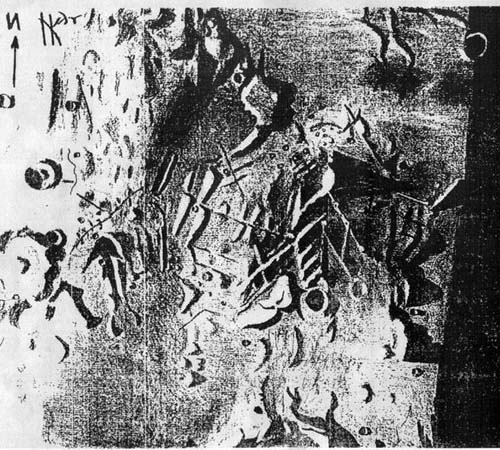Leopardi's Small Moral Works and Gruithuisen's City on the Moon
Small Moral Works (Operette morali) is a collection of 24 writings (dialogues and fictional essays) by the Italian poet and philosopher Giacomo Leopardi, written between 1824 and 1832.
My favorite writing in this collection is Dialogue between the Earth and the Moon. The Earth seeks answers from the Moon about the state of its inhabitants and whether they also experience suffering.
Moon. [...] I tell you that I am inhabited, and you immediately conclude that my inhabitants must be men. I inform you that they are not; but yet, knowing that they are creatures of another kind, you still assume that they have the same qualities, and live under the same conditions as your own people, in confirmation of which you tell me a story about the telescope of I know not what astronomer.
Earth. And are your inhabitants, generally speaking, happy or unhappy?
Moon. So unhappy that I would not change my lot with the most fortunate of them.
Earth. It is the same here; and I am astonished that, being so different in other respects, we are so much alike in this.
In the footnotes of this dialogue, Leopardi makes reference to the discoveries attributed to Franz Von Gruithuisen.
Gruithuisen made multiple observations of the lunar surface that supported his belief that the Moon was habitable. In 1824 he published a paper under the title "Discovery of Many Distinct Traces of Lunar Inhabitants, Especially of One of Their Colossal Buildings."
 Gruithuisen's drawing of Wallwerk, the supposed city, north of Schröter crater on the Moon.
Gruithuisen's drawing of Wallwerk, the supposed city, north of Schröter crater on the Moon.
The paper presents evidence for various lunar climates and corresponding forms of vegetation and for the presence of animals. Additionally, Gruithuisen documented his observations of geometrically shaped features on the lunar surface, labeling them as roads, walls, fortifications, and cities.
Going back to the Leopardi's Small Moral Works, he frequently references and cites passages from a multitude of revered ancient authors, and I want to show some of the quotes I found particularly interesting.
Referencing the Suda:
But when I call to mind the custom of those barbarians, who, for every unhappy day of their lives, used to throw a black stone into a quiver, and for every happy day a white one, I cannot help thinking how few white stones compared to the black ones would be found therein on the death of the proprietor of the quiver.
Referencing Xenophon's Cynegeticus:
[...] on the authority of Xenophon, hares are said to skip and frolic with delight when the moon's radiance is at its brightest.
Expanding from his reference, this is the original from Herodotus, The Histories
The Trausi, who in all else conform to the customs of other Thracians, do as I will show at the times of birth and death. When a child is born, the kinsmen sit around it and lament all the ills that it must endure from its birth onward, recounting all the sorrows of men. The dead, however, they bury with celebration and gladness, asserting that he is rid of so many ills and has achieved a state of complete blessedness.
Literature Old Science
← Back home